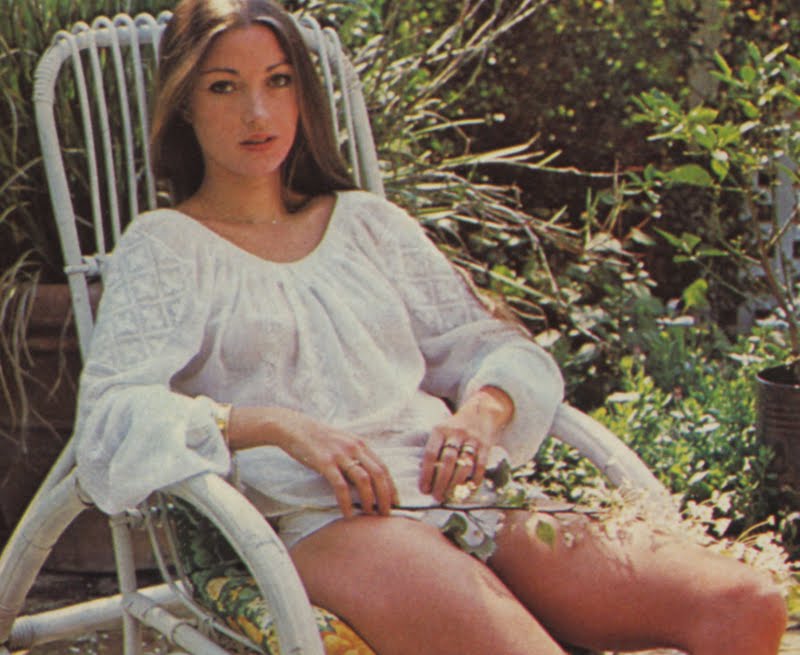Jane Seymour nude images have sparked conversations about body positivity, art, and the delicate balance between celebrity and privacy. As an acclaimed actress, she has navigated the complexities of fame while maintaining her artistic integrity. This article will explore the multifaceted career of Jane Seymour, her choices related to nudity in her work, and how this has shaped her public image.
Born on February 15, 1951, in England, Jane Seymour has established herself as a versatile actress spanning various genres, from drama to romance. Throughout her career, she has taken on roles that often challenge societal norms, including her daring portrayals that include nudity. This article will examine the significance of these choices and their impact on her legacy.
In the realm of Hollywood, discussions surrounding nudity often evoke mixed reactions, especially when associated with prominent figures like Jane Seymour. This article aims to provide an in-depth understanding of her career, the context of her artistic decisions, and the broader implications for society's views on nudity in the entertainment industry.
Table of Contents
- Biography of Jane Seymour
- Early Career Highlights
- Nudity in Jane Seymour's Films
- Public Reception and Criticism
- Body Positivity and Jane Seymour
- Contributions to Art and Culture
- Personal Life and Advocacy
- Conclusion
Biography of Jane Seymour
Jane Seymour, born as Joyce Penelope Wilhelmina Frankenberg, has had a remarkable journey in the entertainment industry. She gained fame in the 1970s with her role in the James Bond film "Live and Let Die." Over the decades, Seymour has showcased her acting prowess in various films and television series, establishing herself as a household name.
| Date of Birth | February 15, 1951 |
|---|---|
| Place of Birth | England |
| Profession | Actress, Producer, Author |
| Notable Works | "Live and Let Die," "Dr. Quinn, Medicine Woman," "Somewhere in Time" |
| Awards | Golden Globe Awards, Primetime Emmy Awards |
Early Career Highlights
Jane Seymour's career began in the late 1960s, with her first major role in the film "Oh! What a Lovely War." She quickly captured the attention of audiences with her beauty and talent. Her breakout role as Solitaire in "Live and Let Die" marked the beginning of her rise to fame. Seymour's ability to portray complex characters has been a hallmark of her career.
Nudity in Jane Seymour's Films
Nudity in film can be a controversial topic, but for Jane Seymour, it has been a part of her artistic expression. In several of her roles, she has chosen to appear nude, using it as a tool to convey vulnerability and depth in her characters.
- "Somewhere in Time": This romantic film featured a brief nude scene that was integral to the story's emotional impact.
- "The Phantom of the Opera": Seymour's portrayal included scenes that showcased her physicality, contributing to the character's allure.
- Artistic Choices: Seymour has often stated that her decisions regarding nudity were made with careful consideration, prioritizing the narrative over sensationalism.
Public Reception and Criticism
The public's reaction to Jane Seymour's nude scenes has varied over the years. While many admire her boldness and artistic integrity, others have criticized her choices. This duality reflects broader societal attitudes toward nudity and women's bodies in media.
Critics argue that nudity can exploit actors, while supporters contend that it can empower and liberate. Jane Seymour has often addressed these critiques, emphasizing the importance of context in any artistic representation.
Body Positivity and Jane Seymour
As an advocate for body positivity, Jane Seymour embraces her body and encourages others to do the same. She believes that nudity should not be viewed solely through the lens of sexuality but as an expression of self-acceptance and confidence.
Seymour's public statements and actions have inspired many to celebrate their bodies, regardless of societal standards. Her commitment to this cause has made her a role model for individuals seeking to embrace their own identities.
Contributions to Art and Culture
Beyond her roles in film and television, Jane Seymour has contributed to the arts through her work as a painter and author. Her artistic endeavors reflect her passion for creativity and self-expression.
Seymour's paintings often explore themes of love, beauty, and the human experience, showcasing her multifaceted talent. Additionally, her books on health and wellness provide valuable insights, reinforcing her status as a trusted figure in the arts.
Personal Life and Advocacy
Jane Seymour's personal life has also been marked by advocacy work. She has been involved in various charitable organizations, focusing on issues such as women's health and education. Her efforts to raise awareness about these topics demonstrate her commitment to making a positive impact beyond the screen.
Through her philanthropic activities, Seymour has shown that her influence extends far beyond her roles in film and television. She embodies the principles of E-E-A-T by combining expertise in her craft with a dedication to social causes.
Conclusion
Jane Seymour nude scenes have played a significant role in shaping her career and public perception. Through her artistic choices, she has sparked vital conversations about body positivity and the portrayal of women in media. As a talented actress, painter, and advocate, Seymour continues to inspire and empower others.
We invite you to share your thoughts on Jane Seymour's contributions to the arts and her impact on society. Leave a comment below, and don't forget to explore more articles on our site.
Thank you for reading! We hope you found this article insightful and informative. Stay tuned for more engaging content, and we look forward to welcoming you back soon.
Article Recommendations


